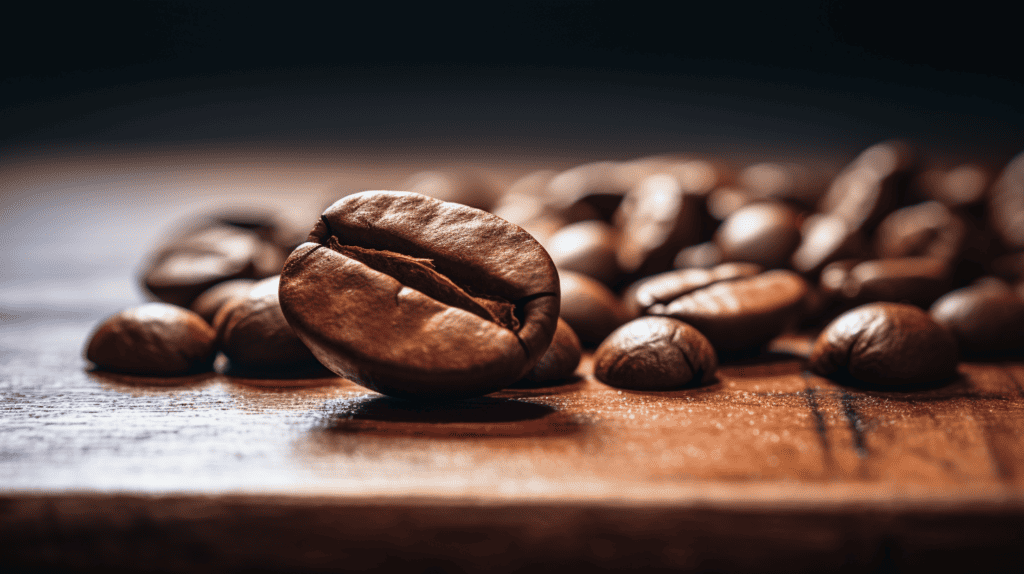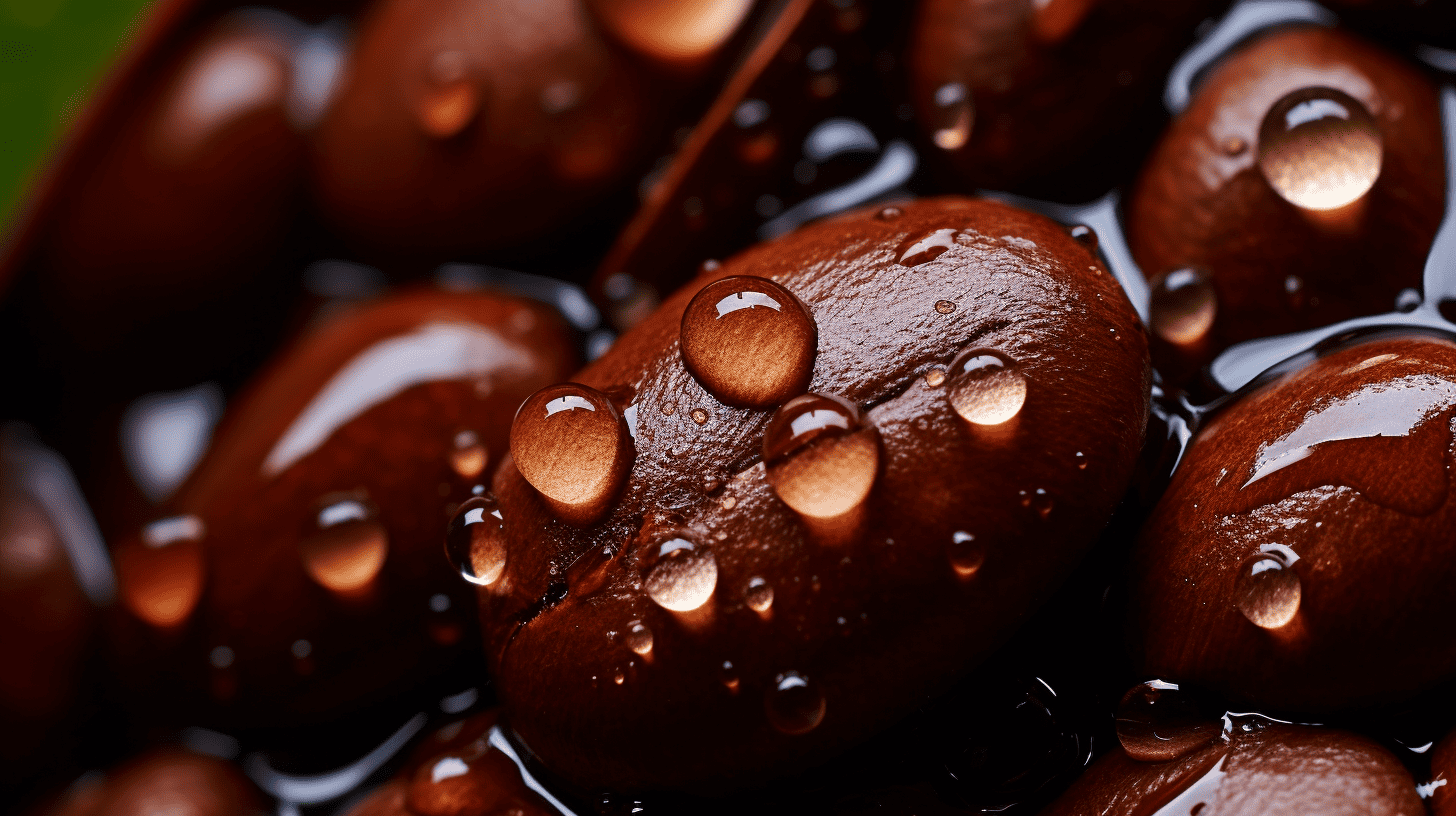Have you ever paused mid-sip, pondering is coffee or diet soda worse for you? You’re not alone; I’ve been there too, juggling between my love for these beverages and their potential health effects.
Armed with facts from extensive research – like how a 12-ounce can of Diet Coke contains about 46 mg of caffeine – this blog aims to help you make an informed decision. Get ready to delve into the world of coffee and diet soda!
Key Takeaways
- Coffee generally contains more caffeine than diet soda, with an average cup of coffee having around 95 mg compared to about 42 mg in a can of diet soda.
- Drinking coffee in moderation has been associated with several health benefits, such as reducing the risk of developing type 2 diabetes and certain types of cancer.
- Diet sodas may contribute to weight gain, insulin resistance, dental problems, and an increased risk of heart disease. It is important to consume them in moderation.
Caffeine Content: Coffee vs. Diet Soda
Coffee typically contains more caffeine than diet soda, with an average cup of coffee containing around 95 mg of caffeine compared to a can of diet soda containing about 42 mg.
Here is a table comparing coffee and soda based on the information from the search results:
| Measure | Soda | Coffee |
|---|---|---|
| Caffeine | Soda has less caffeine than coffee. | Black coffee contains less than 5 calories and no sugar unless you add milk, sugar, or syrups to it. Diet soda options include no sugar or calories, but regular soda has a lot more calories than coffee. |
| Sugar | Soda contains a lot more sugar than coffee or sugar substitutes. | Black coffee contains less than 5 calories and no sugar unless you add milk, sugar, or syrups to it. Diet soda options include no sugar or calories, but regular soda has a lot more calories than coffee. |
| Health Benefits | Coffee has many health benefits, such as reducing the risk of cardiovascular disease, stroke, liver cancer and liver disease, Parkinson’s disease, and Alzheimer’s disease. However, these benefits are only linked with black coffee, not sugary coffee drinks. | Soda has no real health benefits. |
Overall, coffee seems to be a better choice than soda regarding health benefits. However, it is important to note that this comparison is based on black coffee and diet soda, and adding sugar, milk, or syrups to coffee can make it less healthy.
Comparison of caffeine levels
As a coffee enthusiast myself, I’ve often wondered about the caffeine levels in coffee versus diet soda. It’s important to know what we’re putting into our bodies, so let’s break it down in a simple table format.
| Beverage | Caffeine Content (mg per 12 ounces) |
|---|---|
| Regular Coke | 34 |
| Diet Coke | 46 |
| Pepsi | 35 |
| Coffee (average) | 95-200 |
As you can see, coffee generally contains a significantly higher amount of caffeine compared to diet soda. However, caffeine content can vary greatly depending on the type and brand of coffee. It’s also worth mentioning that the effects of caffeine can be highly individual, so it’s essential to listen to your body’s signals and adjust your caffeine intake accordingly.

Effects of caffeine on the body
Caffeine can have various effects on the body. It acts as a stimulant, which means it can increase alertness and improve concentration. However, consuming too much caffeine can lead to jitters, nervousness, and difficulty sleeping.
Caffeine also has diuretic properties, which means it increases urine production and may contribute to dehydration if not enough water is consumed alongside caffeinated beverages. Additionally, caffeine can affect digestion by increasing stomach acid production and potentially causing heartburn or indigestion in some individuals.
It’s important to be mindful of your caffeine intake and listen to your body’s signals to maintain a healthy balance.
Health Impact: Coffee vs. Diet Soda
Coffee consumption has been associated with several health benefits, such as a reduced risk of developing type 2 diabetes and certain types of cancer. Conversely, the negative effects of diet soda include an increased risk of weight gain, insulin resistance, and dental problems.
Benefits of coffee consumption
Coffee has several benefits for your health:
- Coffee contains beneficial nutrients like magnesium, potassium, thiamin, and riboflavin.
- It is rich in antioxidants that help protect your body against damage from free radicals.
- Drinking coffee may lower the risk of developing certain diseases such as Parkinson’s disease, Alzheimer’s disease, and liver cirrhosis.
- Coffee can improve brain function, memory, and cognitive performance.
- Caffeine in coffee can boost metabolism and aid in weight loss.
- Some studies suggest that regular coffee consumption may reduce the risk of developing type 2 diabetes and certain types of cancer.
Risks and negative effects of diet soda
Diet soda may not be as healthy as it seems. Here are some risks and negative effects to consider:
- Weight Gain: Studies suggest that diet sodas may actually contribute to weight gain instead of helping with weight loss. Artificial sweeteners used in these beverages can disrupt metabolism and increase cravings for sugary foods.
- Insulin Response: Diet sodas have been linked to an increased risk of insulin resistance, which can lead to type 2 diabetes. The artificial sweeteners may interfere with the body’s ability to regulate blood sugar levels properly.
- Dental Health: The high acidity of diet sodas can erode tooth enamel over time, leading to cavities and tooth decay. Regular consumption can also stain teeth and cause bad breath.
- Increased Risk of Heart Disease: Some studies suggest that frequent consumption of diet sodas may be associated with an increased risk of heart disease, including stroke and heart attacks.
- Negative Impact on Gut Health: Artificial sweeteners in diet sodas can disrupt the balance of healthy bacteria in the gut, potentially affecting digestion and overall gut health.
- Potential Link to Kidney Problems: There is some evidence suggesting that long-term consumption of diet sodas may be associated with an increased risk of kidney problems, including reduced kidney function.
Sugar and Calorie Content: Coffee vs. Diet Soda
Coffee has a significantly lower sugar content compared to diet soda, making it a healthier choice for those watching their sugar intake.
Differences in sugar content
The sugar content in coffee is generally minimal, especially if you drink it black. On the other hand, diet soda contains artificial sweeteners instead of sugar. These sweeteners have zero or very low calories and do not impact blood sugar levels like regular soda does. However, some studies suggest that consuming artificial sweeteners may still lead to cravings for sugary foods and drinks throughout the day. It’s important to note that some coffee drinks can be loaded with sugar, so it’s always a good idea to check the nutritional information before ordering your favorite coffee treat.
Calorie comparison
When comparing the calorie content, coffee generally has fewer calories than diet soda. A typical cup of black coffee contains only 2 calories, while a can of diet soda usually has around 0 to 10 calories. However, it’s important to note that the calorie content may vary depending on the type and brand of coffee or diet soda you choose. It’s always a good idea to check the nutrition labels for accurate information. If you’re trying to watch your calorie intake, opting for black coffee without any added sugar or cream is a low-calorie choice.

Considerations for Limiting Intake
Limiting caffeine intake is important for individuals who are sensitive to its effects or those who experience negative side effects such as jitteriness, anxiety, or disrupted sleep.
It is also advisable to moderate consumption of coffee and diet soda due to their potential impact on dental health and the risk of addiction.
When to limit caffeine consumption
It’s important to know when to limit your caffeine consumption, especially if you’re a coffee enthusiast. While caffeine can provide an energy boost and increase alertness, consuming too much can have negative effects on your health.
It’s recommended to limit your caffeine intake if you have trouble sleeping or suffer from insomnia. Caffeine can interfere with your sleep patterns and make it difficult for you to get a restful night’s sleep.
Additionally, if you experience jitters, anxiety, or heart palpitations after consuming caffeine, it may be a sign that you need to cut back. It’s also important to note that children and adolescents should avoid excessive caffeine intake as it can affect their development and disrupt their sleep patterns.
Conclusion on Is Coffee Or Diet Soda Worse For You
When comparing coffee and diet soda, it is important to consider their caffeine content, health impact, and sugar/calorie content. While both have potential drawbacks, coffee offers some beneficial nutrients and antioxidants that can support overall health.
On the other hand, diet soda has been linked to negative effects such as weight gain and insulin confusion. Ultimately, moderation and balance are key in making mindful choices about beverage consumption for better long-term health outcomes.
Which is Worse for Your Health: Coffee or Regular Soda?
When it comes to coffee vs soda: surprising truth for wellness, it’s important to consider the impact on your health. While both beverages have their pros and cons, excessive consumption of regular soda can lead to weight gain and increased risk of chronic diseases. On the other hand, coffee, when consumed in moderation, may offer some health benefits such as improved cognitive function and reduced risk of certain conditions. Ultimately, the key lies in making informed choices and practicing moderation to maintain overall well-being.
FAQs on Is Coffee Or Diet Soda Worse For You
1. Is coffee or diet soda worse for your health?
Both coffee and diet soda have potential negative effects on health, but excessive consumption of diet soda may be more harmful due to artificial sweeteners.
2. Does drinking coffee or diet soda affect my sleep?
Drinking coffee, especially in the evening, can disrupt sleep due to its caffeine content. Diet soda with caffeine may also interfere with sleep if consumed close to bedtime.
3. Are there any benefits of drinking coffee or diet soda?
Moderate consumption of coffee has been associated with various health benefits such as increased alertness and improved cognitive function. However, there are no significant health benefits associated with drinking diet soda.
4. Which is a healthier alternative: decaf coffee or non-caffeinated sodas?
Decaf coffee is generally considered a healthier alternative since it still contains some beneficial compounds found in regular coffee without the stimulating effects of caffeine. Non-caffeinated sodas tend to contain artificial sweeteners that may have adverse effects on health when consumed in large quantities.





Leave a Reply